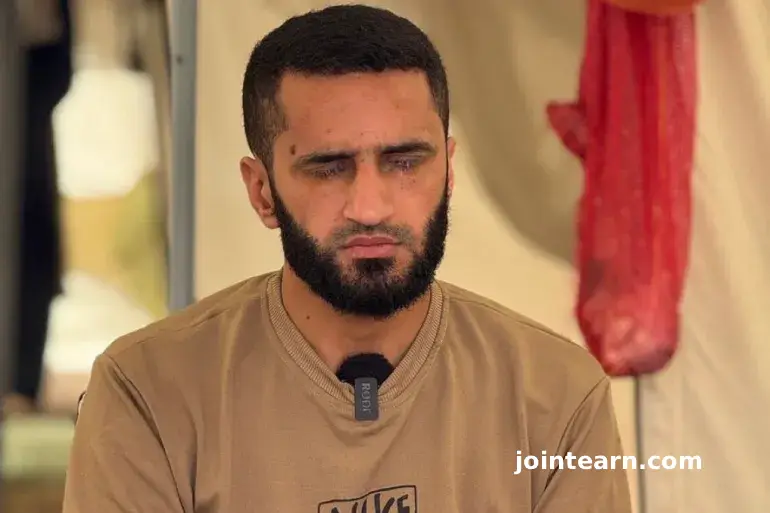
Mahmoud Abu Foul, a 28-year-old Palestinian from northern Gaza, has recounted losing his sight due to severe torture while in Israeli detention. Abu Foul was arrested from Kamal Adwan Hospital in Beit Lahiya in late December and endured months of brutal treatment that left him permanently blind.
Torture and Abuse in Israeli Prisons
Abu Foul was released this week as part of a United States-brokered Gaza ceasefire deal, which saw nearly 2,000 Palestinian detainees freed from Israeli jails. Many released prisoners bore visible signs of abuse, including emaciation, injuries, and permanent disabilities.
Speaking to Al Jazeera, Abu Foul described his detention at Sde Teiman prison, a facility known among detainees as “the prison that breaks men.” He endured repeated beatings, including a severe blow to the head that left him unconscious. When he regained consciousness, he realized he had lost his sight.
“I kept asking for medical treatment, but they only gave me one type of eye drops, which did nothing,” Abu Foul said. “My eyes kept tearing constantly, with discharge and pain, but no one cared.”
Despite hunger strikes and repeated pleas for treatment, Abu Foul received no meaningful medical attention during his imprisonment.
Release and Family Reunion
After his release, Abu Foul was transferred to Nasser Hospital, where he anxiously awaited his family. He reunited with his mother in northern Gaza, describing the emotional moment:
“When I heard her voice, I hugged her tightly. I couldn’t see her, but just hearing her was worth the whole world.”
Abu Foul now lives in a tent near destroyed buildings and is seeking help to travel abroad for urgent medical treatment for his eyes.
Systematic Abuse Documented by Human Rights Groups
Abu Foul’s testimony aligns with growing evidence of systemic abuse in Israeli detention facilities. The Palestinian Centre for Human Rights documented accounts from 100 former detainees held between October 2023 and 2024, revealing that torture was widespread across all Israeli prisons—not just notorious sites like Sde Teiman.
All detainees were held incommunicado, without access to lawyers, judges, or family. Some prisoners suffered extreme weight loss or permanent injuries, and at least 75 Palestinian detainees have reportedly died in Israeli prisons since October 2023.
Israeli rights organizations like B’Tselem have described the prison system as a “network of torture camps,” highlighting systematic physical abuse, deprivation of medical care, and sexual violence.
Limited Accountability and Political Oversight
Despite hundreds of reported abuse cases, Israeli authorities have issued indictments in only two incidents, and no prison service personnel have been held accountable, according to the Public Committee Against Torture in Israel (PCATI).
Dr. Ruchama Marton, founder of Physicians for Human Rights – Israel, stated that decades-long exposure of torture practices has failed to stop the abuses.
Meanwhile, Israel’s far-right National Security Minister Itamar Ben-Gvir, who oversees the prison service, defended harsh treatment of Palestinian detainees, emphasizing that “summer camps and patience for the terrorists are over.”
Ongoing Concerns for High-Profile Detainees
Concerns remain for high-profile Palestinian prisoners like Marwan Barghouti, who reportedly was beaten in Israeli prisons in mid-September. Barghouti’s family has cited witness testimonies warning of continued abuse, raising fears for his safety.
Approximately 9,000 Palestinian prisoners remain in Israeli custody, many without trial or access to proper legal processes. Israel has denied systematic abuse allegations but has not provided evidence to counter the claims.


Leave a Reply